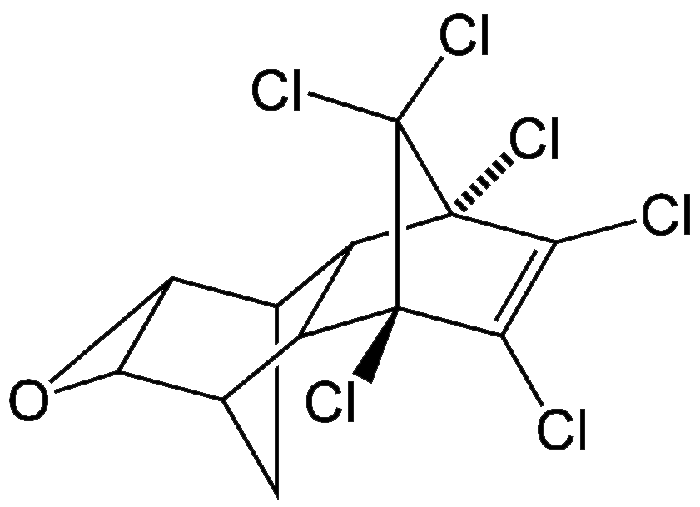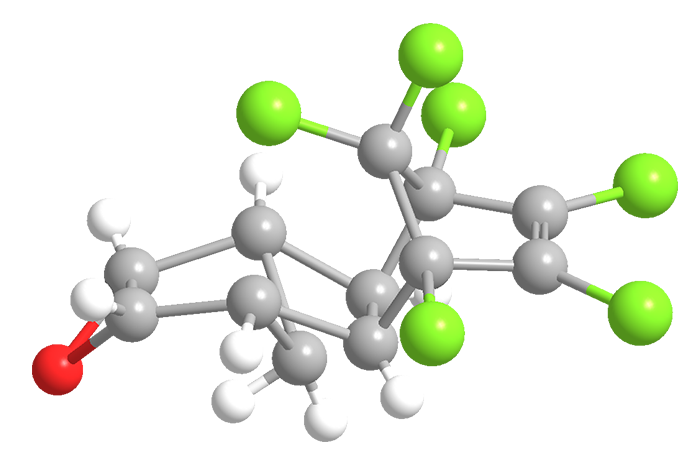What molecule am I?


Dieldrin is a decades-old chlorocarbon insecticide that has long been banned from use in most of the world. It was introduced in 1948 by the now-defunct J. Hyman & Co. Dieldrin is an oxidized version of the similar compound aldrin, from which it is produced. Aldrin is not an insecticide, but it converts to dieldrin in vivo. The compounds are made via the Diels–Alder reaction, from which they get their names.
Dieldrin was widely used from the 1950s to the 1970s as an alternative to DDT. It was highly effective against insect pests, but had these major drawbacks:
- It is very persistent in nature.
- Its concentration increases as it moves through the food chain.
- It is more toxic to many mammals, including humans, than it is to insects.
Although dieldrin hasn’t been used for decades in most of the world, it may still have its uses. Residents of Madagascar have frequently suffered from outbreaks of plague; the most recent came in 2014. Plague is caused by the bacterium Yersinia pestis, which in most cases is transmitted from rats to humans via the Oriental rat flea Xenopsylla cheopsis
The primary method of controlling plague is to kill X. cheopsis. Madagascar fleas, however, have developed resistance to many insecticides. Recently, Adélaïde Miarinjara and Sébastien Boyer at the Pasteur Institute of Madagascar (Tananarive) studied eight flea populations on the island and found, surprisingly, that dieldrin completely controlled all of them.
Despite this success, and considering dieldrin’s persistence and toxicity, Miarinjara and Boyer recommend exploring other ways to eradicate plague.

Learn more about this molecule from CAS, the most authoritative and comprehensive source for chemical information.
Molecule of the Week needs your suggestions!
If your favorite molecule is not in our archive, please send us a message. The molecule can be notable for its current or historical importance or for any quirky reason. Thank you!
Stay Ahead of the Chemistry Curve
Learn how ACS can help you stay ahead in the world of chemistry.

